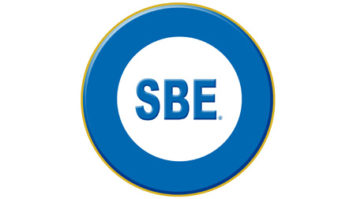Is the Fairness Doctrine returning?
Sep 1, 2007 12:00 PM, By Harry Martin
The FCC is not likely to re-impose the Fairness Doctrine, but Congress might still act to re-impose such a regulatory scheme. The Fairness Doctrine, introduced in 1949, required broadcasters to cover controversial issues of public importance and to provide balanced views on such issues even if that meant giving access to diverse groups.
Broadcasters had considerable latitude in presenting contrasting views. Material did not have to be presented in any particular context and there was no right of equal time afforded. The broadcaster only had to cover contrasting viewpoints somewhere in the station’s overall programming. The doctrine was abandoned two decades ago when the need for it was considered moot as a result of the emergence of a multiplicity of media outlets � not only additional radio and TV stations, but also cable channels and other video distribution methods.
Early this year Presidential candidate Dennis Kucinich (D-OH) introduced legislation in the House to codify the doctrine. Then, during the summer, Republican legislation was introduced in both houses of Congress aimed at preventing the FCC from reinstating the Fairness Doctrine. With this issue so joined, Democrats on the Hill have been looking at how the Fairness Doctrine, if resurrected in some form, might provide a way to counteract the conservative talk radio that has been so critical of them since Rush Limbaugh began his radio show in 1988.
Specifically, Democratic senators Dick Durbin (IL), Byron Dorgan (ND) and John Kerry (MA) have all openly discussed the idea of restoring the Fairness Doctrine, possibly even including it in the Communications Act. Rep. Kucinich has continued his campaign as well. Although these initiatives appear to be dead for the remainder of this congressional session, they are likely to resurface next year and beyond. As everyone knows, there are multiple issues before Congress that are of more importance to the nation than the Fairness Doctrine, but there are few more controversial from the standpoint of partisan politics. The debate is not over and it can be expected to take on new life if a Democrat is elected president in 2008.
The practical and unavoidable problems with the Fairness Doctrine were and remain two-fold. First, it subjected independent programming judgments to second-guessing by the government. And second, that potential for second-guessing discouraged broadcasters from covering controversial issues. This effect is the opposite of what the original Fairness Doctrine advocates intended. Moreover, constitutional values would be jeopardized and the range of issues presented would be decreased, not increased, as a result of re-imposition of the Fairness Doctrine.
FM translators and AM stations
On Aug. 15 the FCC issued its long-awaited Notice of Proposed Rule Making dealing with AM station use of FM translators. Up to this time the agency had been permitting AM stations to use FM translators as �fill-in� facilities, but only under special temporary authorizations. Under the proposed rules, AM broadcasters, including daytime-only stations, can obtain licenses for FM translators to supplement service within their 2mV/m daytime contours, both day and night, in areas that are within 25 miles of their transmitter sites.
Dateline
On or before October 1, radio stations in Alaska, Hawaii, Oregon, Washington and the Pacific Islands must file their biennial ownership reports with the FCC.
Also on or before October 1, radio stations in the following states and territories must place their annual EEO reports in their public files and post them on their websites: Alaska, Florida, Hawaii, Iowa, Missouri, Oregon, Puerto Rico, Virgin Islands, Washington and the Pacific Islands.
Martin is a past president of the Federal Communications Bar Association and a member of Fletcher, Heald & Hildreth, Arlington, VA. E-mail[email protected].












